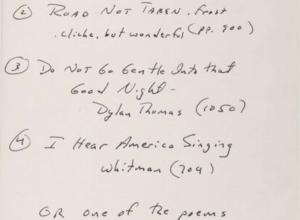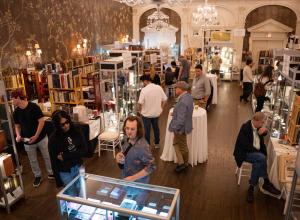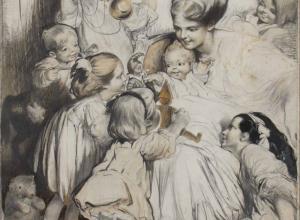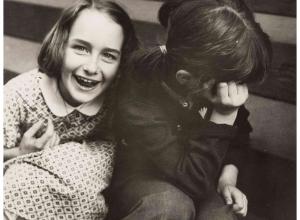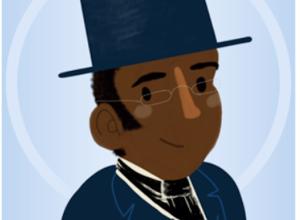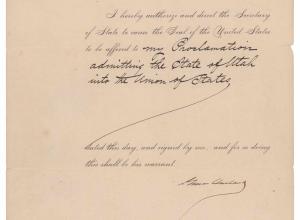Bright Young Collectors: Anne Steptoe
Our Bright Young Collectors series continues today with Anne Steptoe, who recently won the Essay Prize at the National Collegiate Book Collecting Contest. Anne collects 20th century Southern literature:


Where are you from and where do you live?
I grew up in the small town of Charles Town, WV. After a decade in the Northeast, I returned to the South last year and now live in Durham, NC.
What do you study at University?
I was a Classics and English major as an undergraduate at Harvard, focusing on late Republican Latin literature's influence on twentieth-century Southern literature. After graduation, I made the hard decision to veer away from academia to a career that would allow me to help shape the landscape of the modern South more actively. So, I went on to medical school at Brown University and am now enrolled in business school at Duke University.
Please introduce us to your book collection. What areas do you collect in?
I started collecting twentieth-century Southern literature in college, as an extension of my academic research. I wrote my senior thesis on the Fugitive poets, and their work remains the cornerstone of my collection. I've always been inspired by the notion that a small, ragtag band of Vanderbilt scholars and were among the first to insist that Southern literature should not be a sentimental, apologist look at Southern history. This "small" effort would catalyze an entire generation and revitalize the literature of the South. I've expanded my collection over the years to reflect the catalyst moment the Fugitives represent. So I also collect many of the Fugitives' contemporaries and successors, including William Faulkner, Eudora Welty, Katherine Anne Porter, William Styron and their peers.
How many books are in your collection?
Approximately 110 first and early editions, with roughly a third dedicated from Southern literature and the remainder from other modern (mainly 20th century) American and British literature and poetry. I cannot pass up a classic book by an author I love when I come across it, and my collection is a reflection of that.
My first real find was a first edition of Robert Penn Warren's All the King's Men - though it's probably more accurate to say that the book found me. I was living in Boston at the time and got caught without an umbrella in a rainstorm. I happened to walk by a thrift store, and stepped inside for shelter. I was browsing the book section to pass the time when the book caught my attention. It stood out at first because it was older than everything else around it, and very quickly because it was a small piece of home transplanted far from the South. I knew I had to have it, even before I fully understood what I'd found. From there, I was hooking on the collecting experience.
How about the most recent book?
I recently purchased a signed first edition of Katherine Anne Porter's translation of a French song-book. It's something I might have passed up in my early years of collecting because, although it's a rare edition, it's not traditional literature. However, the longer I collect and grow to know these authors' bodies of work, I learn details that endear me to these unusual finds. It turns out, for example, that Porter used the songbook project as a way to bridge a period of writers' block, with some of her most successful work immediately following it. I'll refrain from the cliché about books and their covers, but I think it applies.
And your favorite book in your collection?
One of my favorites has to be my copy of Allen Tate's biography-novel of the Confederate general Stonewall Jackson. The novel itself struggles immaturely at achieving the Fugitive's new complex, non-apologetic telling of Southern history and wasn't a particularly successful effort. However, my copy belonged to the Southern publisher and thought leader, Louis Rubin. Rubin served as a kind of adviser and compass to many of the authors in my collection, and having his copy of one of the earlier efforts at modern Southern literature is particularly special to me. But I'd be remiss not to mention my first edition of To Kill a Mockingbird - to every girl who grew up in the South and loved to read and write, that piece of history is like having a talisman on your bookshelf.
Best bargain you've found?
By monetary value, probably my copy of All the King's Men. However, because I collect twentieth-century Southern literature, I've been fortunate to find many of my valuable pieces at thrift stores at bargain prices.
How about The One that Got Away?
I regret not purchasing more or the rest of Louis Rubin's Fugitive collection when I ran into it at a used bookstore in New Orleans. I was a recent college graduate and reluctant to invest significant money in my new collecting hobby. But the decision haunted me so much that I went back to the bookstore on my next trip to New Orleans, only to find them vanished. Most recently, I was on vacation in Ireland and drove to a small town chasing down a relatively inexpensive copy of Faulkner's The Sound and the Fury I'd seen online. I got there about five minutes after their closing time on the last day of my vacation - I guess I'll just have to go back to Ireland now.
What would be the Holy Grail for your collection?
I'm still a little bitter about my missed copy of The Sound and the Fury, as it's my favorite Faulkner novel and, in my mind, the pinnacle of the Southern writing style for which the Fugitives advocated. I've also shamelessly neglected Carson McCullers in my collecting, though she's one of my favorite Southern writers. But the real Holy Grail, from a personal collecting perspective, would have to be the first edition of the Fugitive magazine - the beginning of it all.
Who is your favorite bookseller / bookstore?
A few favorite bookstores, for different reasons. For rare books and its sheer magnitude, I've always loved the Strand in New York. For keeping me in used paperbacks and continually reading, I'm grateful to the Harvard Book Store and the Brookline Booksmith in Boston, and Books for America in Washington DC. And I'd be a broke collector if it weren't for the many small thrift stores and library sales I've visited over the years. There's an extra thrill of finding and rescuing a first edition book among shelves of dingy mass market paperbacks that is hard to replicate even in the best used bookstore.
What would you collect if you didn't collect books?
Art, especially late 19th century and early 20th century painting (I have a soft spot for the Pre-Ralphelite art since reading associated writers' work). Or perhaps Roman and Greek artifacts, if I had an unlimited budget and there weren't complicated ethics around collecting those items.






